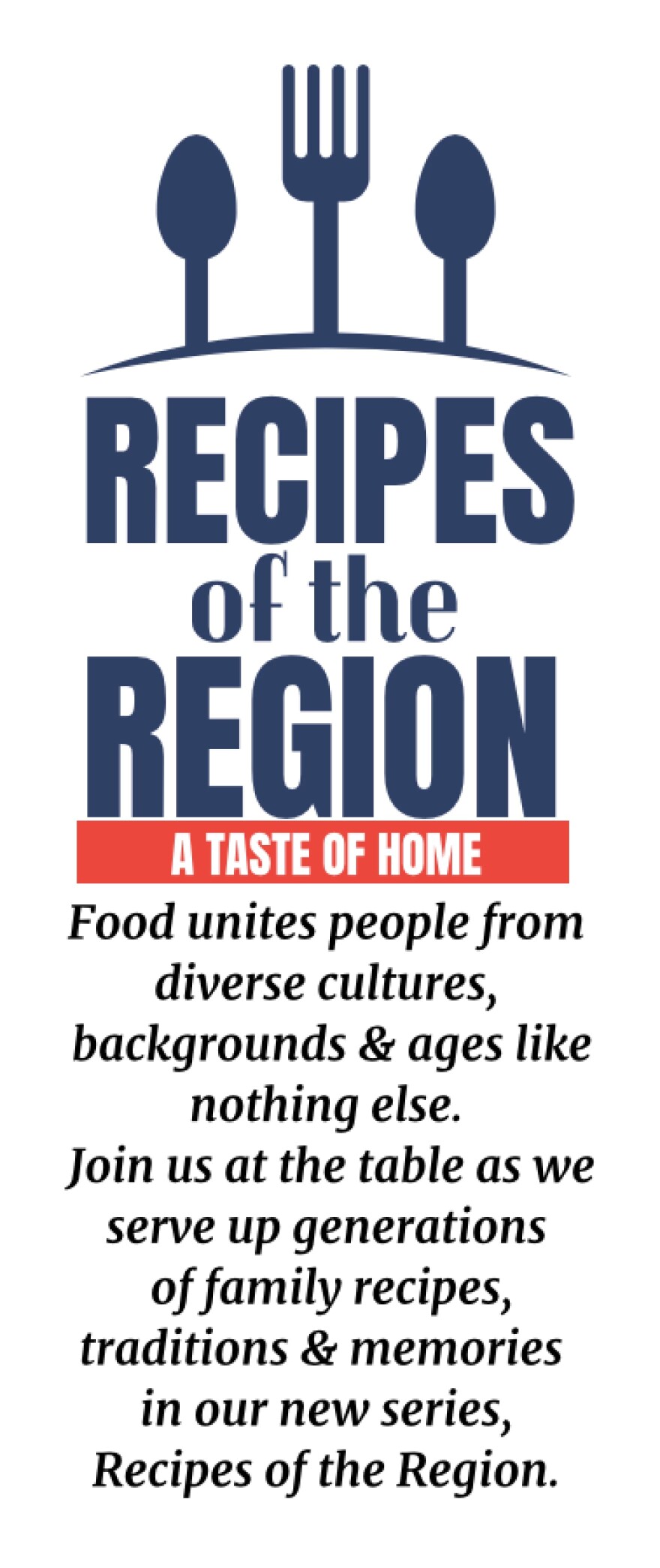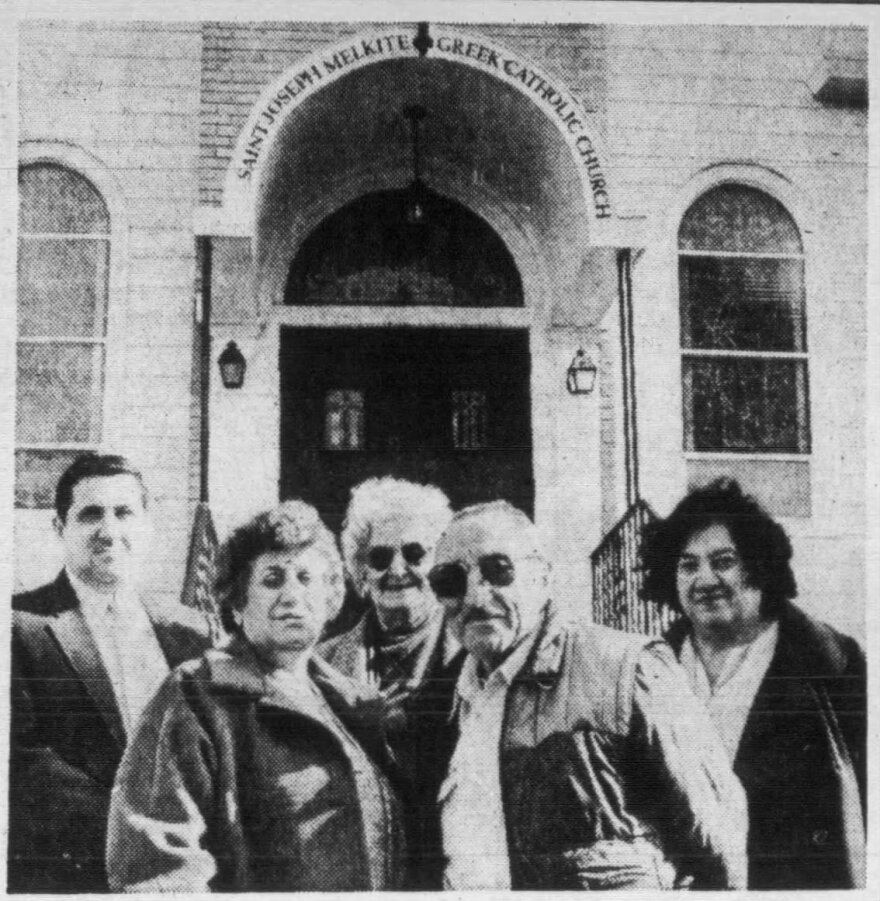
Kathie Abda Barrett thinks of her late mom, Dorothy Abda, when making desserts for the St. Joseph’s Greek-Melkite Church’s Lebanese American Food Festival.
"I talked to her the whole way here, telling her to make sure I do a good job," she said from the kitchen at St. Vladimir Ukrainian Catholic Church. "I get really nervous that ... it's not going to come out good, and I'll be nervous till Sunday, until everybody says it was okay."
Barrett and her sister, Karen Abda Kane, and their grandchildren borrowed the neighboring church’s kitchen in Scranton for the day to make their mother’s pastries for the food festival. It begins today at 4 p.m. and ends on Sunday.
St. Joseph's kitchen is small and was packed with other parishioners getting ready for the festival.
The church in West Scranton was started in 1897 by Middle Eastern immigrants, many of them Lebanese. St. Joseph's has been at its current location on St. Frances Cabrini Avenue since 1908 when the street had a different name and the church was a house.
The food festival began about 20 years ago.
"This is the biggest fundraiser … And everybody loves the Arabic pastry, the Lebanese pastry. So that's why we do it every year,” said Kane.
Recipes passed down through generations are often the backbone of the food served at ethnic festivals around the region. St. Joseph’s is no different.
Kane and Barrett grew up going to St. Joseph's.
"We love our church ... we do it for the church," said Kane.
IF YOU GO
Lebanese-American Food Fest
Friday, Aug. 8, and Saturday, Aug. 9, 4 to 9 p.m.
Sunday, Aug. 10, 1 to 7 p.m.
St. Joseph Melkite Greek-Catholic Church
130 St. Frances Cabrini Ave., Scranton
No recipe card needed
The kitchen was hot. The large commercial oven turned up to 350 degrees. Kane poured simple syrup over shredded wheat. She and Barrett passed a small white ruler back and forth to each other. They measured out almost-exact squares for their desserts. And cut the shapes out with small pairing knives.
Cardboard boxes of walnuts sat on one counter. On another, there were empty butter cartons. Their desserts use 32 pounds of butter.
Dorothy Abda made the shredded wheat and baklawa for bridal showers and graduation parties. She just knew how to make her desserts. Kane said she didn’t follow a recipe book.
Their mom had tricks. Dorothy Abda would fill a clean mustard container with melted butter and make a figure 8 on the phyllo sheets. That was her measurement for butter.
"I used to give her a hard time. I used to say, 'why not a nine or a 10? No, it has to be an eight, Karen,” Kane said.
Their grandchildren stood at the kitchen island and pulled thin sheets of phyllo dough that they layered with nuts. Like Dorothy did, they made an 8 with butter from a mustard container and clear squeeze bottles.
Kane and Barrett first made the desserts with their grandmother.
With one difference, she made the phyllo dough for the baklawa herself.
"Could you imagine rolling it out that thin? Thank goodness they came out with phyllo sheets that we could just buy,” said Kane.
"We're just carrying it on. And hope my grandchildren, Kathie's grandchildren, will carry it on next generation."
Natalie Barrett is the oldest of Barrett's grandchildren.
"I just love doing it. It's so fun to be with my sitti, and always helping her.”
Sitti is an Arabic word for maternal grandmother.
“I think I learned a lot. I think I learned to bake a lot, and I like to spend time with my grandmother, and I think I like to give back and help. It just makes me happy,” said Natalie Barrett.
One of a few
St. Joseph's is one of only a few Melkite Greek-Catholic Churches in the United States. The Greek in the name refers to the original language spoken in the church.
The church is a Byzantine Rite place of worship, which means they follow the religious teachings of the Eastern Roman (Byzantine) Empire. Melkites began worship in the Middle East in 451 AD. It’s primarily centered in Syria, Lebanon, Jordan and Palestine.
Kane says the church is growing.
“We have a thriving population of some new people … they're all young families with a lot of children, and they all love supporting the church,” she said.
The food festival is also growing. It draws people from all over.
"They like the Arabic food, they like the pastry," she said. "And people tell us that, 'Oh, we're from Stroudsburg, well, we're from Wilkes-Barre. We come every year because we like the food, we like the pastry'.”
More than just Middle Eastern food is served at the festival. They cook up sausage and peppers, hot dogs, french fries, Texas wieners, potato pancakes and hamburgers.
"They say we have the best cheeseburgers because it's cooked on the griddle," said Kane.
A personal connection for WVIA's Kat Bolus
The Abda and the Bolus families were among the first Lebanese immigrants in Scranton to help establish the church.
My grandmother, Catherine Bolus, never went by sito, an Arabic word for your paternal grandmother. She was Dorothy Abda’s best friend. Catherine would pick Dorothy up, and they’d cruise around town. Sometimes I'd be in the car.

They were part of St. Joseph’s Women’s Society. My grandmother was the bookkeeper. Catherine made sure our family was always at St. Joseph’s annual spaghetti supper in the fall and church breakfast in the spring.
Through generations, people lose their language, hometowns or even home countries. Recipes are tweaked, and stories become tales.
But somehow, generations keep the connection.
"Our mother would be proud of us," said Kane. "Kathie and I always say, 'Why did we do this?' Well, because she would be happy about it.”
*Kat Bolus is a member of the WVIA News Team.
Dorothy Abda's Shredded Wheat:
2 boxes of shredded wheat
4 cups of milk, heated
Two pounds of butter, melted
Six cups walnuts or a large container of Ricotta cheese
Simple syrup (make at least one day ahead):
3 cups water
3 cups sugar
Sliced lemon
1. Heat the butter and milk separate
2. Crumble one box of shredded wheat into the bottom of a tray
3. Top with melted butter and warmed milk
4. Top with walnuts or Ricotta cheese
5. Crumble the second box of shredded wheat on top
6. Bake for a half hour at 350 degrees, then spin the pan around, bake for another half hour at 350 degrees
7. Cut into squares
8. Pour cold simple syrup on top of the hot shredded wheat — Kathie Abda Barrett says "that’s the key."















